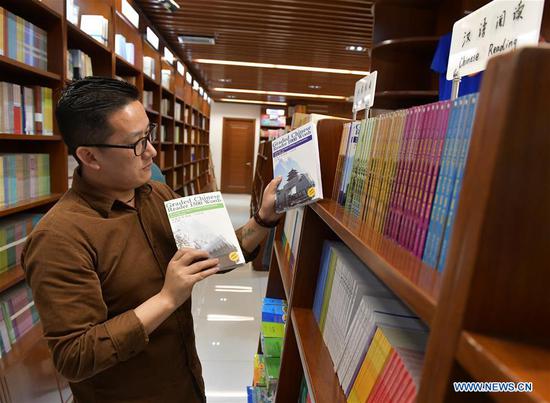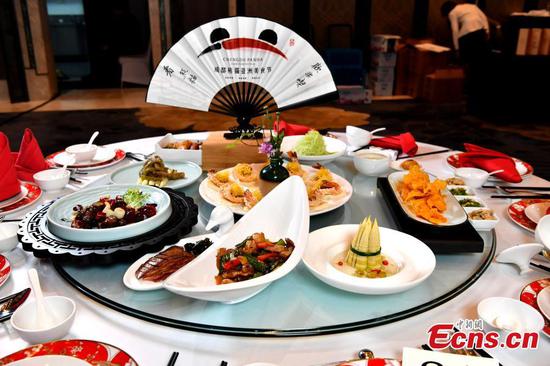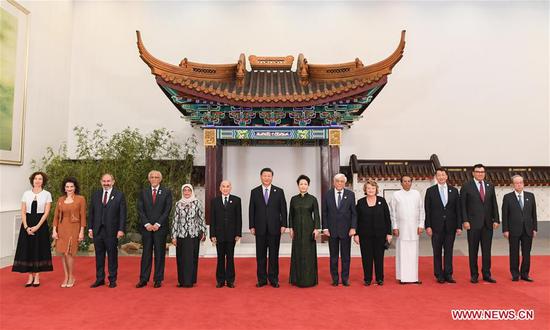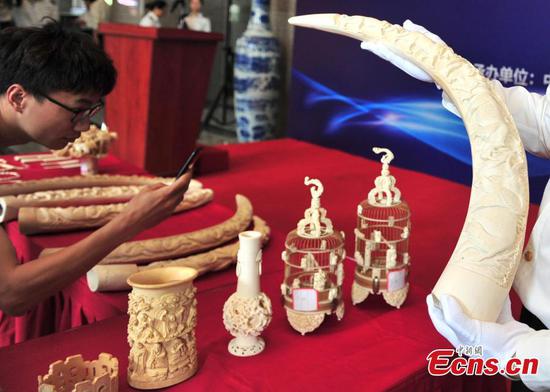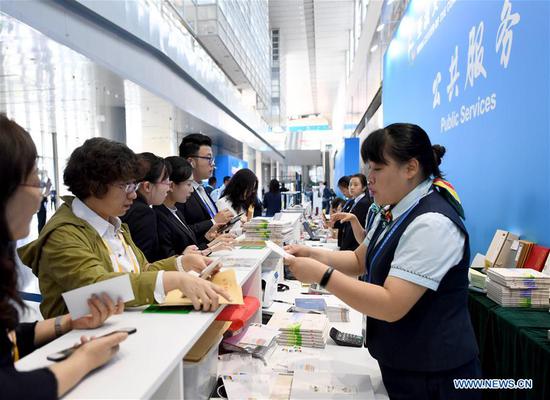China has the confidence and capacity to fend off any external risks and shocks, Foreign Ministry spokesperson Geng Shuang said at a press briefing on Wednesday, amid escalating China-U.S. trade tensions.
The U.S. trade protectionist measures may affect the Chinese economy to a certain extent, but it can totally be overcome, he said.
According to media reports, the U.S. side has painted a gloomy picture regarding China's economy, claiming China is "very eager" to strike a trade deal with the United States.
Rebutting U.S. remarks as "groundless," Geng said China's economy has maintained steady growth with positive momentum, citing a 6.4 percent economic growth for the first quarter, which is faster than expected.
"It is worth mentioning that domestic demand has become the major engine driving China's growth, with consumption accounting for 76.2 percent of the economic growth last year," Geng added.
In a recent report on global economic prospects, the International Monetary Fund (IMF) has upgraded its growth forecast for China, the only such one among major economies, according to the spokesperson.
Noting China is blessed with a complete system of industries, a rising capability in scientific and technological innovation, the largest middle-income group in the world, and a huge domestic market for consumption and investment, Geng said China is fully confident of its economy and will be resolutely promoting reform and opening up as well as high-quality development in accordance with its own timetable and road map.
In response to widespread worries about global economic uncertainties incurred by a new round of tariff hikes, Geng said escalating trade tensions "serve no one's interests," and will "tie down the world economy as well."
Geng pointed out that it is the United States who started the trade disputes, who first imposed additional tariffs on Chinese products, and who repeatedly applied maximum pressure on China, noting what China has done so far was a purely self-defense to safeguard its legitimate rights and interests as well as to uphold multilateralism and the free trade system.
On the U.S. claim that its consumers will not pay for tariff hikes on Chinese products, the spokesperson said this is against common sense.
U.S. soybean, corn, wheat and other agricultural organizations have voiced opposition to tariff hikes against imports from China in a joint statement, Geng said. He also cited a study by U.S. economists, which indicates a loss of 4.4 billion U.S. dollars per month last year for U.S. consumers and importers as a result of tariff increases against China.
Calling on the United States to "carefully weigh its gains and losses, grasp the situation and get back on the right track as soon as possible," Geng urged the U.S. side to meet China halfway in achieving a mutually beneficial and win-win agreement on the basis of mutual respect.









